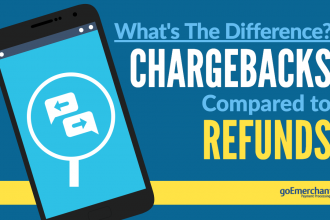There are a number of major decisions required in any startup business. Among these decisions is the type of revenue model you will implement. How you generate income will determine your approach to the business itself, including product development, sales, content creation, and marketing. Some businesses develop their enterprise with a clear strategy in place, while others focus on acquiring an audience and building a brand, before attempting to generate income. The following seven revenue models are among the most common and form the basis for some of the most successful enterprises online.
Memberships
A popular model is to offer membership subscriptions, typically paid on a monthly basis. Subscribers are free to cancel at any time, but they usually remain for an extended period if the service is good. This type of model can be used for a variety of products and businesses, including digital information programs, software as a service, and streaming media. A major benefit is that you can rely on a fairly consistent amount of revenue based on the average length of time members stay subscribed.
Advertising
Advertising is one of the simplest revenue models to employ. There are many networks that provide text, image, and video ads, while you could also make direct deals in certain cases. Content creators, such as bloggers, video personalities, and podcasters, like this method because it allows them to focus on developing their product. Advertising also works well as a consistent income stream while you take the time to explore supplementary revenue opportunities.
Affiliate
Many vendors allow affiliates to promote their products in exchange for a commission. The affiliate model can also be used effectively by content creators, allowing them to recommend related products without taking on the research and development costs. Additionally, affiliate marketing lets you test a market before committing to it fully, so you can reduce your risk before investing a large sum.
Pay-Per-Use
Also known as metered services, pay-per-use charges a customer for how much of a product they consume. Users can join a service, possibly for free or a small charge, then pay according to usage. For example, some hosting and cloud computing companies charge based on bandwidth, so a customer doesn’t see a halt in services if they exceed a certain threshold. This type of service is a flexible alternative to a membership subscription.
Add-Ons
Developing add-ons for established products can be enough to develop an entire business around. For example, creative phone cases allow you to market to a huge number of people with phones. A software company could build apps designed for a major social network like Facebook. While some add-ons might be overly dependent on another business, it is possible to create something that enhances products that are based on a whole industry rather than a particular brand.
Sponsorships
Large brands have provided sponsorships long before the internet, but a growing number are now willing to use their budgets for web businesses. Even startups are looking for strategic sponsorship opportunities to get their business in front of a targeted audience. You can offer sponsorships of a section on your website, at the start of your videos, during podcasts, and anywhere else where you command an audience.
Joint Ventures
Joint ventures or partnerships are a great way for a business to earn a supplementary income. You may offer a particular product or service, but there are also related products that customers could benefit from. For example, you might sell bodybuilding supplements, so it would be mutually beneficial to work with businesses that sell workout equipment and fitness programs. Instead of treating everyone as a competitor, consider how you can benefit other partners in a combined effort.
These options are proving successful for online businesses in all kinds of niches. Many of the most popular websites use these models, with simplicity often pointing the way to success. You could even combine the different strategies to fit your business. For example, advertising might be your primary model, but you also work as an affiliate for related companies. While some businesses might not have a clear model that fits with your concept, by developing an adaptable business that allows you to experiment, you can focus on your core concept until the best revenue model presents itself.


